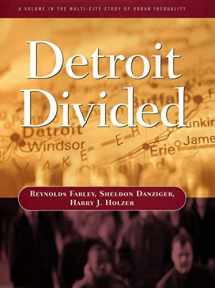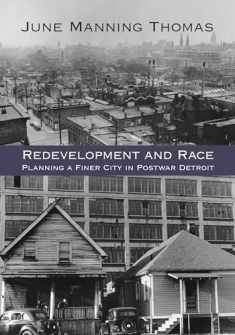
Detroit Divided (Multi-City Study of Urban Inequality)
Book details
Summary
Description
Unskilled workers once flocked to Detroit, attracted by manufacturing jobs paying union wages, but the passing of Detroit's manufacturing heyday has left many of those workers stranded. Manufacturing continues to employ high-skilled workers, and new work can be found in suburban service jobs, but the urban plants that used to employ legions of unskilled men are a thing of the past. The authors explain why white auto workers adjusted to these new conditions more easily than blacks. Taking advantage of better access to education and suburban home loans, white men migrated into skilled jobs on the city's outskirts, while blacks faced the twin barriers of higher skill demands and hostile suburban neighborhoods. Some blacks have prospered despite this racial divide: a black elite has emerged, and the shift in the city toward municipal and service jobs has allowed black women to approach parity of earnings with white women. But Detroit remains polarized racially, economically, and geographically to a degree seen in few other American cities. A Volume in the Multi-City Study of Urban Inequality


We would LOVE it if you could help us and other readers by reviewing the book
Book review




